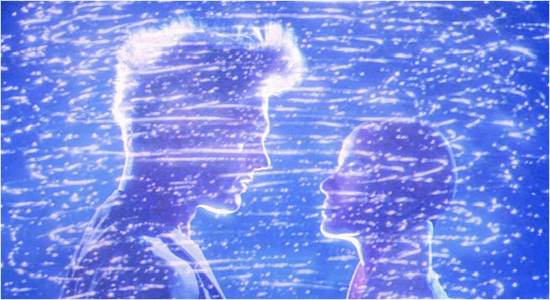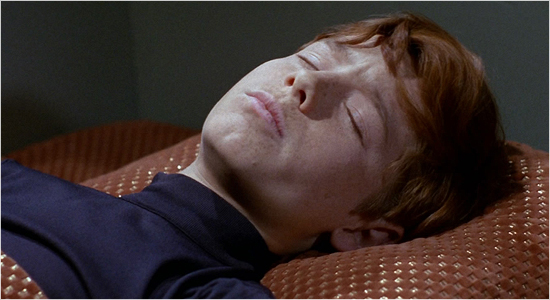After its recent encounter with V’ger, the U.S.S. Enterprise has returned to dry dock to finish its refit before commencing its continuing mission.
The crew has been granted a two-week period of shore leave before preparations for their next voyage begin.
Shaken by their encounter with V’ger, Kirk, Spock and Sulu travel to their respective homes and must reflect upon their lives—now forever changed.
Order Shadow of the Machine:
Once again, Simon & Schuster has treated us to a Star Trek eBook exclusive novella, the latest in their continually growing line of stories to supplement their monthly novel releases. And, as usual, they have chosen a story that highlights one of the many strengths of this shorter format: an intimate character study of three of our beloved characters.
As I have stated in many earlier reviews, the e-book novella format allows for many types of stories that probably wouldn’t fly in a full-length novel. Shadow of the Machine presents us with one such story.
Above all else, Shadow of the Machine is a very introspective story, providing us with insights into the characters of Kirk, Spock, and Sulu. Each of our heroes must face a very personal challenge upon returning home following the incident with V’Ger in Star Trek: The Motion Picture.

Post-Motion Picture and pre-Wrath of Khan is a period that is not often explored in Trek fiction. This era is ripe for exploration, and I was very happy to discover that Shadow of the Machine takes place in this period.
One small issue I have is that Shadow of the Machine is not in continuity with some of my favorite Star Trek novels. Christopher L. Bennett’s outstanding Ex Machina is one novel that portrays the period following The Motion Picture quite well, and I am slightly sad that it is irreconcilable with what we are presented with in Shadow of the Machine.
Similarly, this novella shows Sulu’s child and family life in a way that doesn’t fit with another of my favorite books, Peter David’s The Captain’s Daughter. Neither of these qualms are deal-breakers, however, and Shadow of the Machine is a compelling and well-told story on its own merits. There is no rule that the novels need to be in continuity with one another, only that they don’t contradict “canon,” or what has been portrayed on-screen in Star Trek television shows or films.
Final thoughts:
In Shadow of the Machine, Scott Harrison seems to have set out to write a TOS version of TNG’s “Family,” and it works quite well for the most part. The character notes are nearly perfect, and the insight into the lives of Kirk, Spock, and Sulu are handled very nicely.
Kirk’s visit with his family in Iowa was very interesting, especially since insights into his extended family are few and far between. I have always wondered what became of his nephew, Peter, following the harrowing events of the TOS episode “Operation: Annihilate!”.

Stories that explore the fallout of huge events are always necessary, in my opinion. It is one of the reasons I loved “Family,” and always felt just a little disappointed that we never saw Picard truly dealing with the aftermath of his lifetime lived as Kamin of Kataan (following the wonderful episode “The Inner Light”).
These are real people with real struggles, and it makes sense that huge events would take their toll on the psyches of our heroes. Shadow of the Machine explores this idea, and does it quite well.
